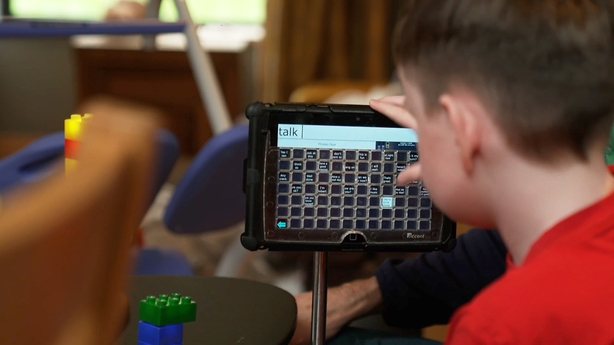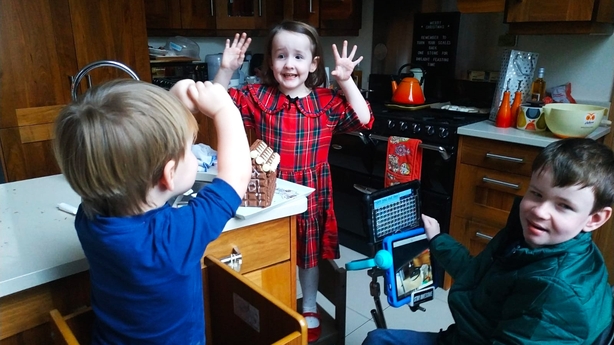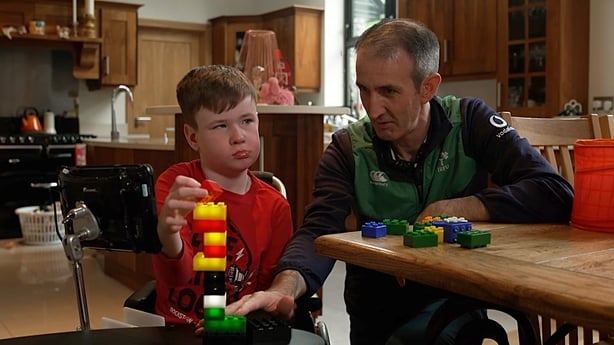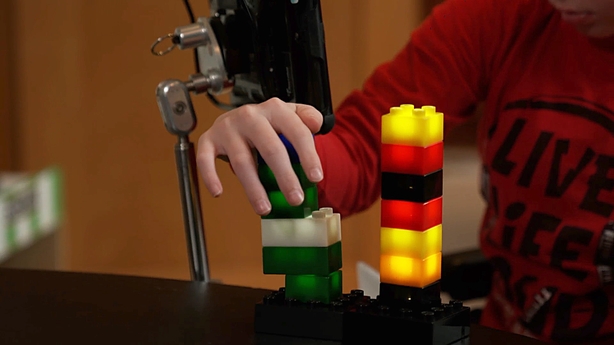The Child and Family Agency has criticised a County Mayo school and accused it of a "lack of action" in handling the case of a nine-year-old boy with cerebral palsy and cystic fibrosis who has been absent from school for more than one year.
Tusla has asked the board of management and Principal of Cong National School to provide "a specific date and time" of when the boy will return to school and it said the manner in which the case had been dealt with by the school was "simply unacceptable".
The boy, nine-year-old Robert Coakley, is from Partry in Co Mayo. He is non-verbal and uses a wheelchair. Robert's parents say he has the ability to lift himself with assistance when using the toilet, but the school is insisting that a mechanical hoist be used, on advice from the HSE locally.
The board of management of the school has told the family that it endeavours "to provide a safe environment for both pupils and staff".
In a letter sent to the family late last year, it said that its decision on the issue is "guided by the relevant statutory agency, in this case the HSE".
Notwithstanding the disagreement, the school informed the parents that Robert is welcome to attend the school and it said, "all possible endeavours of staff will be forthcoming".

Siobhán and Seán Coakley have spent the past year working with several agencies to try and resolve the issue. They say his consultants at the Central Remedial Clinic want Robert to continue to use the mobility he has, to aid both his cerebral palsy and cystic fibrosis.
They are not willing to allow their son be mechanically hoisted to use the toilet.
"It's adding to Robert's disability, quite honestly, because Robert has the ability to do the transfer without a hoist. And so, by putting Robert into a hoist over time, that is going to add to his disability," Siobhán said.
"Okay, that's great. And it'll tick the box for school. What do we do when Robert comes home? What do we do when we want to take Robert out to a restaurant or want to travel with Robert? How do people that need a hoist to get onto airplanes disembark in another country? I mean, it literally is shutting down his world and our world with him as a family."
Prime Time first interviewed the family last October when they spoke about the impact it has had on them.
Their three-year-old daughter, Karen, also has cystic fibrosis and they also have a two-year-old son named Oscar.
"It's broken us as a family – it really has. Every day, we watch Robert go backways. I mean, during the pandemic, everyone saw the effect it had on children being out of school. The children are back. But Robert isn't, and he's increasingly frustrated. He's acting out. He's not sleeping properly. He's just a lonely little boy. He just wants his friends," Siobhán told Prime Time.

His father, Seán, said the family have tried everything to resolve the issue.
"It's an impossible stalemate at the moment. Like there's nothing – we've exhausted every avenue that we can to try and get Robert back to school and get common sense, as we see it, to prevail. We’re torn between trying to figure out what to do and who's right or who's wrong. Everyone's contradicting one another," he said.
Robert’s case is unusual and complex, but it is not a one-off. The Department of Education has confirmed that, in 2020/21, a total of 86 children with special educational needs were availing of home tutoring.
The figures for this month, obtained by Prime Time, indicate that at the moment 44 children over the age of six are receiving home tutoring.
Many may be temporary and legitimate, but others can be long-term. It is a cause of concern to the Disability Federation and its chief executive, John Dolan.
"I'd like to think that home tutoring gets used when there's an absolute necessity for someone for a period of time when they can't actually be at school," he said.
"Maybe there's some illness or some condition or whatever it is and you're just keeping them from getting rusty in terms of the books and all the rest and all the academics. But it is not a substitute for being in a class and in the school and in that environment."

The Coakleys are upset. They feel their son has been harshly treated for simply wanting to use the limited mobility he has.
"For us to share our story in this way is really a last resort," Siobhán said.
"And we don't feel there's any dignity for Robert – but it's a story that has to be told. It seems because it's getting nowhere in the shadows. It just speaks to a bigger thing about how we treat disability in Ireland," she said.
"Yes, he's disabled in society. But, for us, Robert is differently abled. But in this case, being different means he cannot go to school. So we have a choice: do we choose Robert's education or do we choose Robert's mobility? And in 2021, there's something just not right about that."
Mr Dolan said that finding a solution is essential.
"I think it's important for the people who are involved in it locally to struggle and try and work more with each other to work it out. Maybe there's not always a perfect solution, but there has to be a solution that works for the child and the family in the context of that local school," he said.

"This isn't just about that child being in the school for the child's sake. That child is of that community. This little fella's pals are in that class, and they haven't seen him either. So there's two equal sides to this. I think that has to be kept in the balance."
Speaking on Thursday's Prime Time programme following a report about Robert's case, Minister of State for Special Education and Inclusion Josepha Madigan said that Cong National School would obtain equipment that would allow the nine-year-old to return to school on a trial basis "within two weeks".
"It's a very bespoke type of equipment, and this was a bespoke solution for this particular case. And it's a very unique situation. It hasn't arisen before, that we know of," she said.
"We have a solution now. It hasn't been ideal, but it is sorted. And it will be sorted. And it's very important that we have Robert back in school, and indeed all children with additional needs."
Cong National School did not respond to requests for comment from Prime Time. The Health Service Executive said it could not comment on individual cases.





